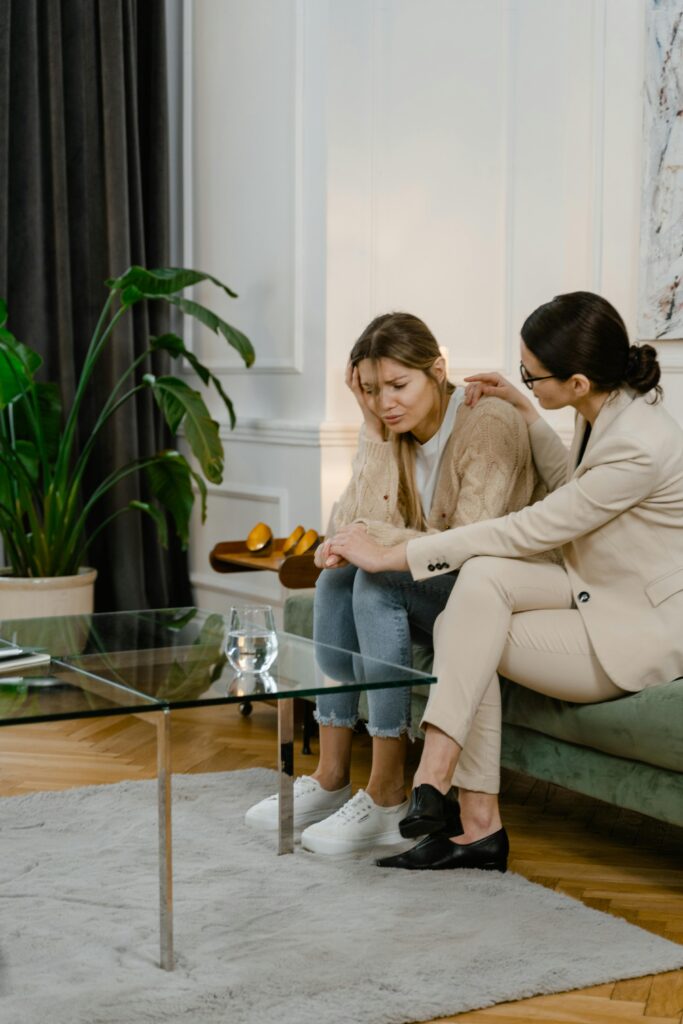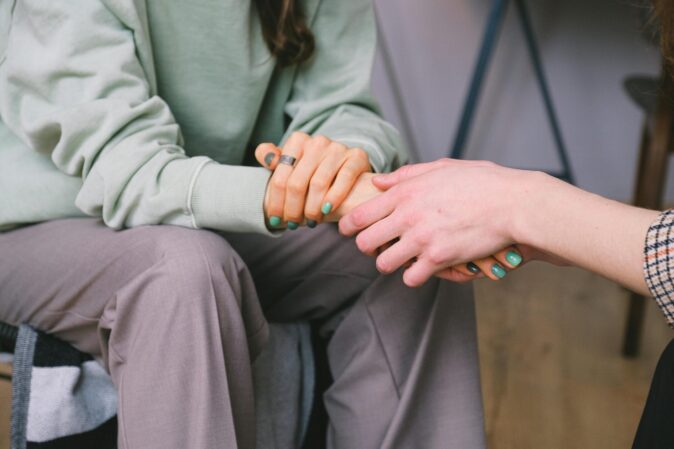To be honest, I still don’t know how to console you on this day. As your friend, the only thing I can do is to stay with you. So, I just thought I should do that faithfully. I can’t stop the rain that pours in your heart, but I can stand in it with you. I can hold an umbrella. That’s what will ease my heart. From the Kdrama, Dear.M

Grief is both a universal emotion, as well as a highly personal one. Though everyone experiences it, we are often unprepared to deal with it or to help others struggle through this most unwanted of feelings.
In modern American culture, grief is sometimes treated as an inconvenient illness that you are expected to recover from by the time your three-day bereavement leave is over. If you are even eligible for one. Recently my husband was unable to get time off work for his 97-year-old aunt’s funeral, his 87-year-old mother’s only sister and remaining sibling.
At one time grief was more public. One dressed in black for a prescribed time or wore a black armband or label pin and put a black wreath on the door so that everyone knew you had suffered a loss. Once again, it’s become more public–we post it on Facebook. Friends can then offer an appropriate, “I’m so sorry for your loss.” That can be a real comfort.
But that doesn’t make it easier to bear or to know how to help a friend in the midst of their pain.
A good friend of mine is mourning her brother’s death after his heart-rending decline through several years of Alzheimer’s. She had worked in the dementia field, so she was able to offer professional support and advice to his wife and try to help the family navigate difficult decisions. She knew what was coming, but his physical and mental condition in the end was still devastating for her.
In a recent phone conversation as she was helping plan his memorial service, she told me, “I didn’t expect it to hit me so hard.” He was her only sibling and her parents are long gone. There are no aunts, uncles or cousins. She has her husband, daughters and grandchildren, but no living older or contemporary family.
“I feel like an orphan,” she said.
I wanted to say wise and consoling things and thought about my struggles with grief after my mother died in 1992. She had been in and out of the hospital with emphysema for nearly ten years. In the end we discovered she had late-stage pancreatic cancer and was admitted to the hospital on a Palm Sunday evening. Members of my large family sat vigil by her hospital bed during her last week as she gradually drifted off into a morphine-induced coma to ease the excruciating pain she had endured in silence for who knows how long.
Through the years of my mother’s declining health and then that final week, I too, like my friend, thought I was prepared for her death, which came on the night before Easter, as several of us held her hands during her last breaths.
And I, too, was stunned by the unexpected grief.
“No matter how much we are mentally prepared,” I said to my friend, “I don’t think we are ever emotionally prepared to lose someone we love.” I don’t know it that was a consoling thing to say.
When my father died five years after my mother, I too felt like an orphan, in spite of eight siblings, numerous nephews and nieces, my husband and children. I felt her loss and sense of disorientation.
In the Kdrama, Dear.M, a college student, Ma Joo-ah, runs through the rain to find her fellow student and childhood friend, Cha Min-ho. On a rainy day when he was six, Min-ho’s parents died in a car accident. Joo-ah finds him, standing in the rain, lost in grief and holds an umbrella over his head, just as she had done as a young girl.
As they are sitting in a coffee shop later, she says to him, To be honest, I still don’t know how to console you on this day. As your friend, the only thing I can do is to stay with you. So I just thought I should do that faithfully. I can’t stop the rain that pours in your heart, but I can stand in it with you. I can hold an umbrella. That’s what will ease my heart.
Grief is not logical. Nor does it have a timeline. Nor a prescribed way of “dealing with it.” Each person mourns in his or her own way. The death of a loved one is not something we “get over.” Rather, we learn to live with it. At first we endure it. And in our American culture, we are expected to endure it quietly so we don’t make others uncomfortable.
And then we adapt, somehow, to the empty space in our heart. Grief often comes back in waves at the holidays or special anniversaries, especially the anniversary of our loved one’s death. It can also sneak up on us or appear in unexpected ways and unexpected times and take us completely by surprise.
I think about what that college student said to her friend, and I think about what I could say to my friend and to the wife of my cousin, Bryan, whose one-year death anniversary is coming up.
But maybe I don’t need to say anything. Maybe I just need to stand in the rain with them and hold an umbrella.
Question: What is one small thing you can do for someone you know is grieving?




